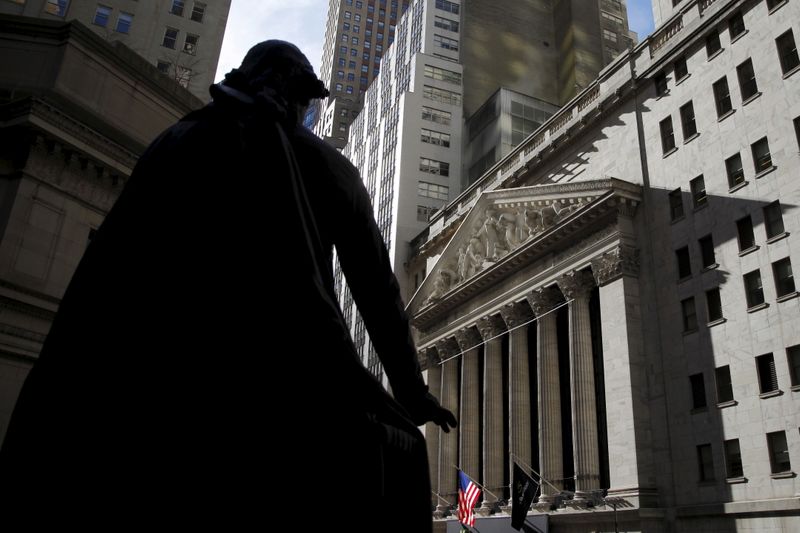By Noel Randewich
(Reuters) - The S&P 500 hit a record high on Tuesday, thanks largely to months of outperformance from Amazon (O:AMZN) and other heavyweight technology companies viewed by investors as likely to emerge from the coronavirus crisis stronger than smaller rivals.
The widely followed index's most valuable companies have surged this year, with Apple (O:AAPL), Microsoft (NASDAQ:MSFT) and Amazon each up between 33% and 72% year to date.
Graphic: Big Tech gets bigger Big Tech gets bigger https://graphics.reuters.com/USA-STOCKS/FANG/oakveogzyvr/chart.png
ABIOMED (O:ABMD), Regeneron Pharmaceuticals (O:REGN) and West Pharmaceutical Services (N:WST), all involved in developing and selling therapies for the coronavirus, have risen over 50% since the S&P 500's previous record high in February.
Trillions of dollars of monetary and economic stimulus aimed at reducing the economic fallout for tens of millions of Americans out of work because of the coronavirus have driven the S&P 500 up more than 50% from its March 23 low, with the benchmark now up nearly 5% for 2020.
Graphic: S&P 500 vs unemployment https://fingfx.thomsonreuters.com/gfx/mkt/yzdvxxyoxvx/Pasted%20image%201597765514650.png
While the pandemic has forced many restaurants and shops out of business, large supermarkets and retailers with strong online sales have grown. Thanks mostly to Amazon, the S&P 500 consumer discretionary index (SPLRCD) has gained 23% in 2020, making it the second-strongest performer among 11 sector indexes, below technology.
The information technology index (SPLRCT) has jumped 25% year to date, lifted by Microsoft, Apple, Mastercard (N:MA) and other companies seeing stronger demand for their products and services as people staying at home do more shopping online.
While some investors worry that the rally since March has been concentrated largely among tech companies, others have confidence that these stocks' gains are justified as the pandemic leads to a sharp increase in online shopping, cloud computing and other uses of technology.
"These are firms that have solid fundamentals that are superior to the broader market and will benefit from recent trends. We do not find that this high concentration is a source of systemic risk,” said Benjamin Jones, senior multi-asset strategist at State Street (NYSE:STT) Global Markets.
Graphic: S&P 500 sectors year to date https://fingfx.thomsonreuters.com/gfx/mkt/qmyvmamnovr/Pasted%20image%201597765106160.png
With the U.S. corporate earnings season mostly completed, a record number of companies have beaten dramatically lowered estimates. But the second quarter is still set to be the low point for earnings this year.
Even after a recent modest improvement in profit estimates, the S&P 500 is trading at about 22 times expected earnings, its highest multiple since the dot com era two decades ago.

Graphic: S&P 500 PE revisits dot-com highs https://fingfx.thomsonreuters.com/gfx/mkt/ygdvzmrynpw/Pasted%20image%201597765664933.png